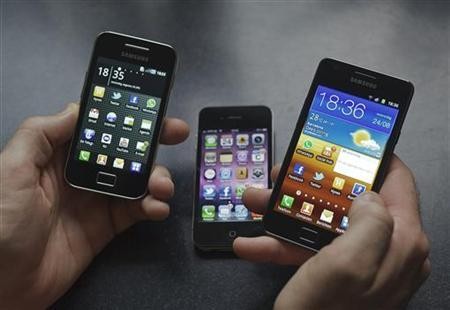ZDNet's Larry Dignan looked beyond the "Apple vs. Samsung" market tussle that has dominated technology headlines for numerous years at the end of last month, explaining that the Korean corporate giant needs to be more concerned about the competition presented by Chinese smartphone manufacturers.
While the chief editor did not make any suggestions about what this means for Cupertino, anyone with an eye on the tech media will see that Tim Cook will not remain unscathed by the movement in eastern Asia's giant economy.
According to Dignan, Apple does not play in the "basement," competing with Samsung only at the higher end of the market, so the emerging threat from China is only significant to the Korean company, which does operate on the lower tiers.
With Apple Inc. posting the highest profits of any public company in the history of the planet, largely attributable to sales of the latest iPhone, the American super-brand is likely to sit comfortably at its end of the market for some time to come.
However, the recent Las Vegas CES technology showcase, in addition to the upcoming CeBit conference in Germany, provided us with a substantial glimpse of just what is in store for the handset market: a Chinese wave.
Xiaomi is now a member of the billion-dollar startup club, with a market value of $46 billion, and had become the top seller of smartphones in China over a mere four-year period. Apple's phenomenal fourth-quarter performance, which was enough to beat any competitor, forced Xiaomi to step down from the throne recently.
The story continues, as president and chief operating officer of Motorola, Rick Osterloh, spoke to Forbes last week about its "fantastic" quarter. Now under the ownership of China's Lenovo, the handset brand saw its fourth-quarter revenue rise 118 percent from the previous year, with sales of over 10 million units. Also last week, Qihoo spoke about its under-construction Chinese smartphone factory.
While technology analyst Chuck Jones is skeptical about whether China beat the U.S. in iPhone sales last quarter, he is open to a dominant Chinese showing for the March quarter, so there is still time for Apple to enjoy the comfort of its regained number-one position.
However, now that Alibaba has entered the smartphone industry, investing over half-a-billion U.S. dollars in the Meizu startup, the heat underneath its throne will eventually become unbearable.



























